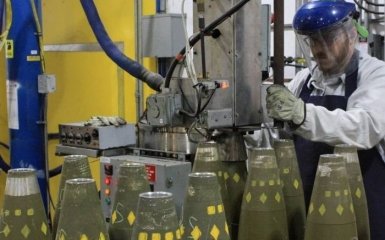According to Western arms experts, a large number of arms manufacturers in the world have increased their production of weapons to replenish stocks that have been depleted by the delivery of aid to Ukraine.
Points of attention
- The EU is experiencing delays in providing military aid to Ukraine due to a lack of raw materials, such as cotton fiber, essential for ammunition production.
- European arms manufacturers are increasing production efforts to replenish depleted stocks, but encounter challenges in the supply chains, hindering the ramping up of military aid to Ukraine.
- Investing in expanding production capacity is crucial for the EU to counter Russian aggression and support Ukraine effectively in the face of raw material shortages and production hurdles.
- The shortage of raw materials poses a significant hurdle for EU countries in increasing ammunition production, despite existing contracts with manufacturers, highlighting the need for increased investment.
- Industry experts stress the importance of increased investment to enable Europe to resist Russian aggression, meet the demand for military aid to Ukraine, and overcome production challenges.
What prevents the EU from increasing military aid to Ukraine
It is noted that a number of European arms manufacturers have made progress over the past 2 years, investing in expanding production even before receiving government contracts.
According to Tom Waldwin, a defense procurement officer at the International Institute for Strategic Studies, in some cases European companies have increased the production of artillery ammunition 10 times compared to the period before Russia launched a criminal war against Ukraine.

In particular, the German defense concern Rheinmetall plans to increase the production of 155-mm ammunition according to NATO standards from approximately 100,000 units in the period until 2022 to 1.1 million ammunition per year from 2027.
The Swedish company Saab said that it plans to double the production of ammunition to 400,000 in the near future.
In general, supply and replenishment efforts are held back by constraints in supply chains. Industry representatives claim that in order for Europe to be able to resist Russian aggression and at the same time replenish depleted reserves, much more investment is needed, Western analysts explain.
What problems does the EU face on the way to increase the production of ammunition
It is emphasized that one of the key problems for the EU countries is the acute shortage of raw materials, among other things, cotton fiber, necessary for the production of nitrocellulose.
In this regard, Rheinmetall said it has increased the stock of certain types of raw materials, such as cotton fibers and armored steel, to reduce risks to its supply chains.
Although companies have already signed contracts with governments to increase capacity, ramping up production will take time, analysts emphasize.




